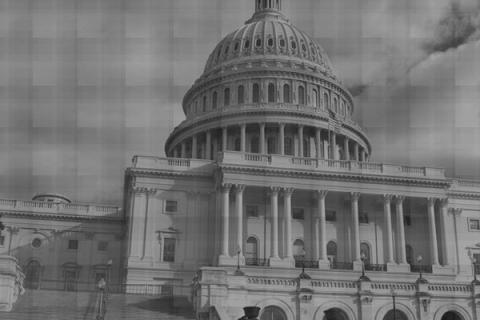On Tuesday April 6, Senate candidate Tom Campbell shared his vision for the economic future of California. Campbell unveiled his plan “A New Direction for American Prosperity,” and explained that in order to get the economy back on track, “We need to return to free market principles and return fiscal responsibility to Washington.”
The hallmarks of his plan include chopping excess regulations, cutting down the size of government, cutting taxes, cutting massive spending, focusing on higher education support and turning to the free market as an engine of job creation.
The ambitious plan has many parts and would seek to strongly reform the ‘business as usual’ way of large government today. Some of the highlights of the plan, as shared by the Campbell campaign with CAIVN, include:
the end of deficit spending
the lowering of payroll taxes and capital gains taxes
a strict review of governmental regulations, culminating in a veritable chopping block of aforementioned regulations deemed to be “unwarranted, wasteful, and expensive”
a balancing act (balancing the federal budget “without raising taxes”), which would entail spending cuts of areas other than defense and putting TARP dollars back into the system in an effort to cut down the federal deficit
the defeat of governmentally regulated healthcare through a ground-up renewal and to “ensure passage of federal laws to permit the interstate sale of insurance policies."
Campbell’s campaign also has goals which are broader in scope, including a vow to end to the “unwarranted intrusion of federal government into areas such as health care, financial system, and our energy infrastructure.”
As a candidate for US Senate, Campbell has made known his issues on some of the hottest and most controversial topics of the day, including federal finances, campaign finance reform and federal healthcare legislation. It should also be noted that Campbell holds a PhD in Economics, was a disciple of the revered economist Milton Friedman, and was a professor of law at prestigious Stanford University by the time he was 30.
Campbell tells us that the number one issue for him is to get the economic engine of California roaring once more. As an economist, Campbell points to the health of the national economy as a barometer of what to expect statewide. “When the economy recovers, the state budget will become balanced as well. Our state's revenues fluctuate hugely; they're 50% dependent on the personal income tax, and that taxes capital gains at the rate of ordinary income, so the stock market's gyrations are reflected in the state's finances,” he explained.
If elected Senator, Campbell already has plans for those monies devoted to the federal stimulus package and paid back by TARP borrowers. “I favor taking the federal stimulus money, using half of what's left to reduce the deficit to create a sense of confidence about interest rates and inflation, and spending the rest in waivers of payroll taxes for hiring people who have been out of work for two months or more.”
As for campaign finance reform, Campbell supported McCain-Feingold while in the House of Representatives. While he recognizes the validity of trying to curb financing of political campaigns to some degree, he also recognizes the problems raised for those candidates without a steady arsenal of easy cash. “With the Supreme Court's decision, however, it is unlikely that its reforms can continue,” he says. “So we are left with limits on individual contributions, but no limits on wealthy candidates' expenditures for their own campaigns, and no limits on independent expenditures. It creates a bias against candidates who lack personal wealth.”
As implied in his economic plan, Campbell is not a supporter of the federal takeover of the health care industry, as recently passed by Congress. If elected, he plans to help repeal the law, so long as it is also supplanted “With care for the needy, and for those with pre-existing conditions,” as outlined in his alternative healthcare plan.
Campbell is concerned about the implications of the current law's slashing of personal liberty through federal mandates and additional taxes on levels of coverage, and through the creation of “An even larger deficit” thanks to Medicare cuts. “Higher interest rates will choke off our economic recovery,” he warned, stressing the importance of thinking through the true ramifications of the healthcare law critically. “This could have been done without the massive structure created by the federal law,” he added.
A March poll found Tom Cambell inching just ahead of current Senator Barbara Boxer. Perhaps a conservative revolution is in the cards for California.
